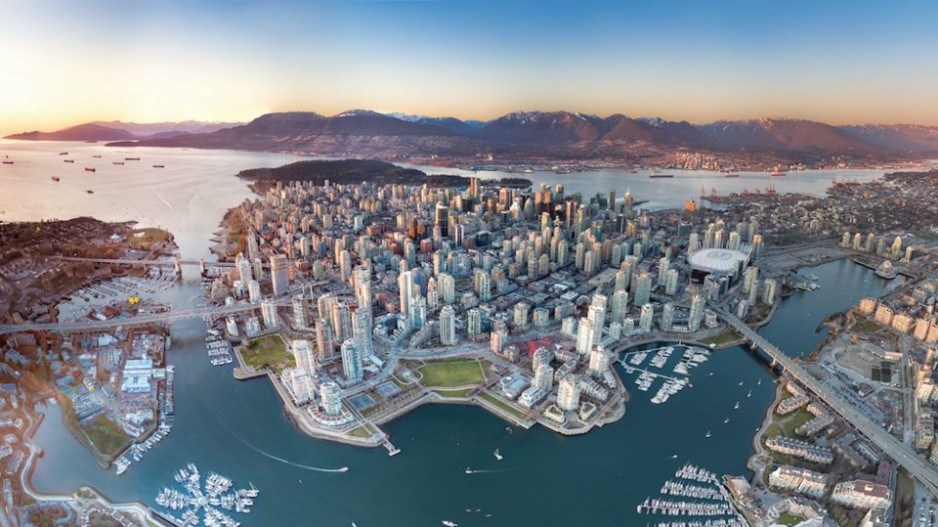Alain Bertaud chose the perfect week for his first visit to Vancouver.
The renowned French urban planner arrives for a raft of speaking engagements and lectures coincidentally as the Ken Sim administration stages one of the city’s most significant hearings in memory on bylaws broadening the supply and portfolio of housing where it is least dense.
Bertaud is a transformative thinker on how cities operate and evolve. His landmark book, Order Without Design: How Markets Shape Cities, argues for a reduction in regulation to permit market forces to flourish. He believes that urban planners need to be urban “economists,” minimizing their top-down prescriptive architecture of communities and maximizing market efficiencies.
When I tell him I doubt there is an economist at City Hall, he says “I would not be surprised.”
While his critics think he is too freely market focused, Bertaud argues the development of masterplans for a community are not only oblivious to economic consequences, but their prescriptions are often futile and even harmful to lower-income residents.
He argues that a mayor and his staff ought not to be visionaries but be absorbed in delivering outcomes on Key Performance Indicators (KPIs) as managers of bottom-up civic initiatives. He started a half-century ago working for Le Corbusier on planning Chandigarh, capital of Punjab. He has lent his talent to more than 40 cities in China, Russia, the United States and India. His research incorporates data analytics, economics and an understanding of market forces, so his insights combine elements of economics, architecture and public policy.
At age 84, the senior scholar at New York University’s Marron Institute of Urban Management and the former principal urban planner for the World Bank for nearly two of his five decades of urban planning says cities need constant adaptation. There is no room for a visionary in the mayor’s chair, he has often argued, nor for “frozen” land use too often found in communities. And in a city like Vancouver, he says, it is appreciably critical that land use be efficient and that public transit be proficient.
What council will hear starting this week at an extensive public hearing is what the community thinks of a proposal for multiplexes where there are now only single-family homes. This is commonly called the “missing middle,” which suggests an affordability that some time ago slipped away from the middle class it still professes to target.
For some time the more realistic term than “affordable” ought to have been “attainable,” and even then there are doubters that the disruption to neighbourhoods will yield significant shifts from today’s housing costs. It would be a surprise if the hearing did anything but set the stage for one of the city’s clearest calls yet for additional units on lots now limited to a single-family residence.
While our conversation didn’t specifically address what Vancouver council will discuss and decide, Bertaud has seen this movie play many times elsewhere as residents’ concerns about greater housing density served to thwart housing diversity.
The success of any pushback on density suggests that homeowners “have more voting rights than their children or grandchildren,” he says. “If you think that young people should have a chance, then it is not right.”
Those balking on change “don't realize that in the long run, somebody will have to pay their pension or their health insurance.” He turns the discussion to the “enormous role” media have now in the city “in educating the public on the trade-off. We could freeze the city the way it is, but it's going to be a museum.”
The consequences of stagnant population growth or an aging population are profound on the local economy and often quietly harmful – like the university graduate forced to move from the city because she can’t afford rent suddenly lives “where a degree will not be very useful, so she’s losing her productivity because somebody in Vancouver decided I want to keep the character of my neighbourhood.”
In these episodes he sees in many places of constant rejection, “it will take another 10 to 15 years before they really see the disaster,” he says. “And by that time, it will be irreversible.”
Postnote: One of Bertaud’s public presentations takes place Tuesday, Sept. 19, from 7:30 p.m. to 9 p.m. at the Roundhouse Community Centre in Vancouver. Tickets are available at:
https://www.eventbrite.com/e/alain-bertaud-order-without-design-tickets-657188688057
Kirk LaPointe is the publisher and executive editor of Business in Vancouver and vice-president, editorial, of Glacier Media.




